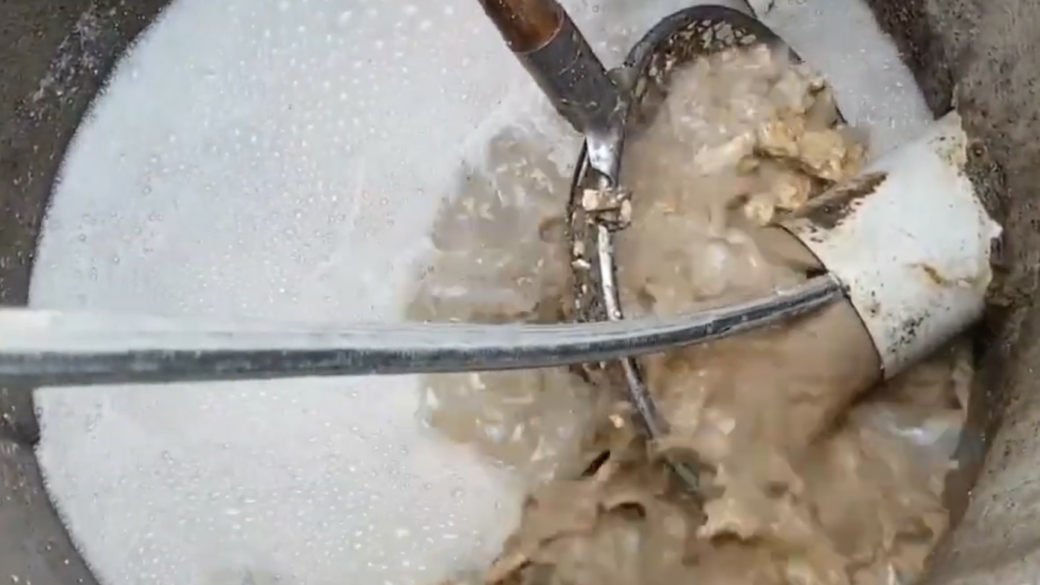How Long Does a Landlord Have to Fix Sewage Backup: A Comprehensive Guide
In the world of renting, running into problems like sewage backup can be upsetting. It not only interferes with the tenant’s everyday routine but also presents a major health threat. Understanding the obligations and rights of both the landlord and the tenant in such circumstances is essential. But how long does a landlord have to fix sewage backup? Does this count as an essential repair?
In order to provide you with the information you need to handle these circumstances successfully, let’s go into the details.
To find out your landlord’s responsibilities if there’s a gas leak, read this article.
So How Long Does a Landlord Have to Fix Sewage Backup?
Time is of value while trying to deal with sewage blockage. Typically, emergency repairs, such sewage overflow, must be addressed by landlords within 24 to 72 hours. The precise time range, however, might change depending on the seriousness of the problem and the state rules governing landlord-tenant interactions.
Tenants should report any problems in writing as soon as possible, maintaining a log of all communications. You can find the specific laws for repairs in your state by clicking on the state you live in our table.
Landlords are required by law in many countries to keep the property in a livable condition, which includes guaranteeing adequate sewage disposal. A legal principle known as the “warranty of habitability” requires landlords to provide their renters with safe and habitable circumstances.
This principle, which has been affirmed in court judgments, is crucial in defining the appropriate time range for repairs.
Legal Requirements for Landlords
Regulations force landlords to guarantee that the rented property is habitable. The legal criteria that landlords must follow are examined in this section with an emphasis on American law.
Federal Laws
The U.S. Department of Housing and Urban Development (HUD) is in charge of overseeing the government policies and initiatives that deal with housing issues. HUD emphasizes the need for safe and hygienic living conditions even if it does not specify a deadline for sewage backup repairs.
State Laws
The precise time periods in which landlords must take care of sewage blockages are determined more directly by state rules. It is important to be informed of the local rules that apply in your region because state regulations differ. For example, in California, landlords are obligated to take care of serious problems like sewage backups in a reasonable amount of time, which is often 24 to 72 hours.
Local Ordinances
The obligations of landlords may also be governed by municipal rules in addition to state and federal laws. These restrictions may specify deadlines for various repairs, including sewage backups. To learn the precise criteria in your area, it is advisable to speak with a legal professional or the local housing authority.
What If the Landlord Refuses to Fix the Sewage Backup?
Tenants have a number of options if the landlord refuses to fix the sewage backlog within a reasonable amount of time, or is ignoring you. First, tenants have the option of postponing payment of rent until the problem is addressed. Reputably known as “repair and deduct,” this tactic enables renters to take care of issues on their own using the rent payment. This should only be used as a last option and only after seeking competent legal counsel.
Reporting the problem to the local health or housing authorities is a further option. These organizations may require the landlord to make the necessary fixes. In severe circumstances, renters may even file a lawsuit against the landlord for failing to uphold the assurance of habitability, seeking redress like a rent reduction or even the end of the lease.
Tips for Dealing with Sewage Backup That’s Not Fixed
Tenants can take a number of actions to lessen the damage caused if the sewage backlog is not quickly addressed. First and foremost, it is essential to properly document the problem, including taking pictures and keeping a log of all correspondence with the landlord.
Personal Safety
Put your own safety first by staying away from the sewage water, which may contain hazardous viruses and bacteria. If you have to move through the contaminated region, put on safety gear, such as masks and gloves.
Temporary Fixes
Tenants might take temporary measures like cleaning the troubled areas with a mix of water and vinegar while they wait for the landlord to remedy the problem. It is important to remember that these are only short-term fixes, and the landlord must still make the required repairs.
Why You Must Clean Up After a Sewage Backup
Maintaining the aesthetically pleasing appearance of the property after a sewage backlog is important, but it’s also essential to the residents’ health and safety. Pathogens that are detrimental to human health, such as bacteria, parasites and viruses can be found in sewage water.
Health Risks
Tetanus, Hepatitis A and Giardia are just a few diseases that may be contracted via sewage water exposure. To stop the spread of infections, it is crucial to properly clean and disinfect affected areas.
Property Damage
Sewage backup may also seriously harm the property, weakening its structural components and destroying its contents, among other things. Immediate cleanup might aid in reducing the degree of the damage.
Does the Tenant Have the Right to be Relocated During Maintenance and Repairs?
Tenants have the right to request temporary relocation if there is a major sewage backup that makes the property uninhabitable. Depending on regional regulations and the provisions outlined in the rental agreement, the specifics of this entitlement may change.
Legal Provisions
Legal requirements exist in several places requiring landlords to offer renters alternate housing during significant renovations. To understand your legal options in such circumstances, it is important to speak with a legal professional.
Rental Agreement
The terms of the rental agreement may also include the landlord’s obligations to make alternate accommodations. In order to comprehend the clauses pertaining to relocation during repairs, tenants should carefully review their rental agreement.
FAQs
Can I withhold rent if the landlord does not fix the sewage backup?
Yes, renters do have the option to withhold rent in numerous jurisdictions when a landlord ignores major habitability concerns, such as sewage backup. To prevent any consequences, it is crucial to adhere to the legal processes precisely.
Can I break my lease if the landlord does not fix the sewage backup?
If the sewage backup is severe and the landlord repeatedly ignores it, renters may have the right to terminate the lease without penalty. To investigate this possibility, it is advised to speak with a legal professional.
Conclusion
Being a renter during a sewage backup might be challenging due to its complexity. You might be better equipped to fight for your rights if you are aware of the legal system and your landlord’s obligations. It’s important to respond quickly, properly document the situation, and, if required, seek legal counsel. It is important to stay informed and secure in your rental process.
If you also want to know how long a landlord can leave you without heat, check out this post.


